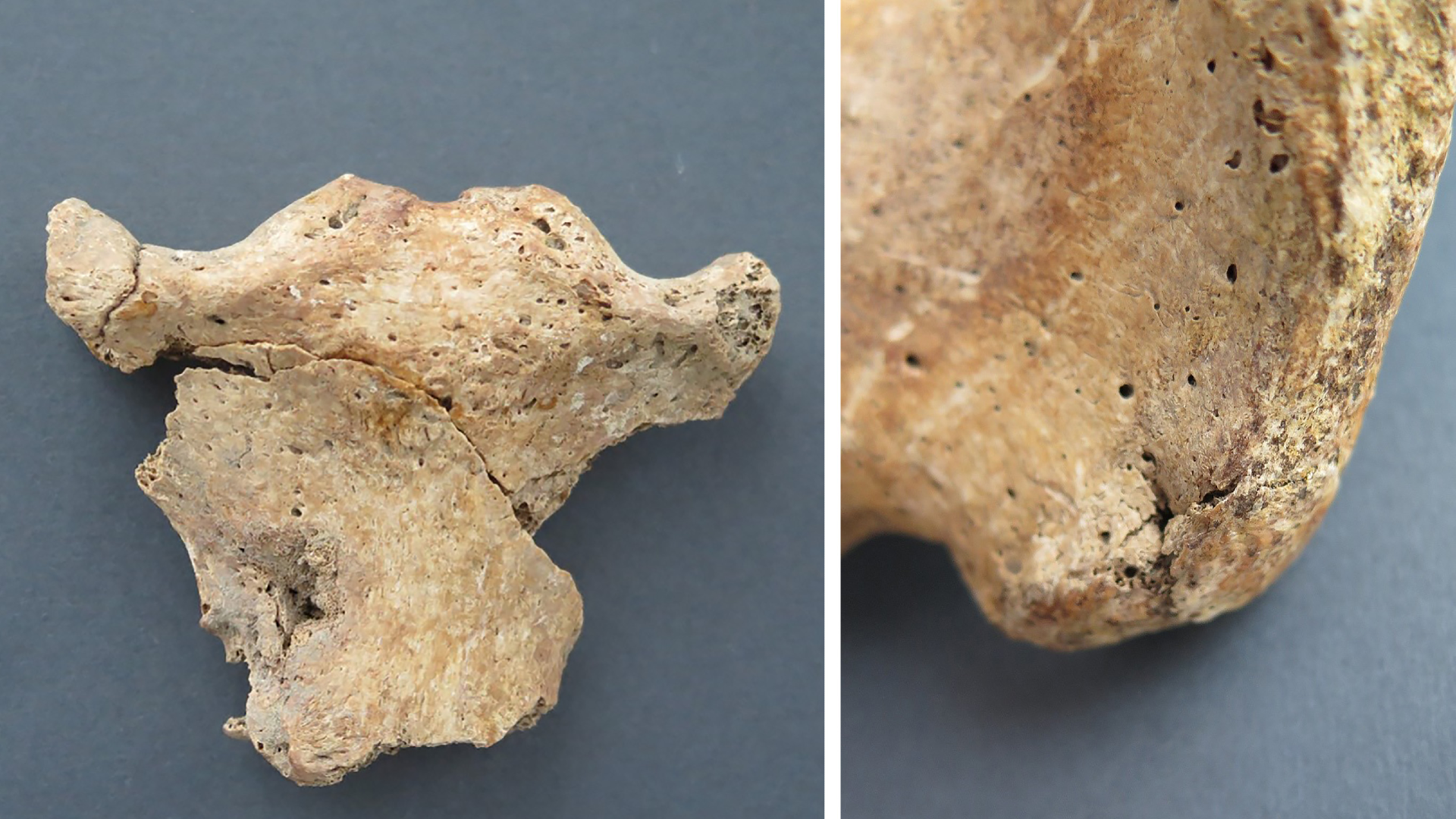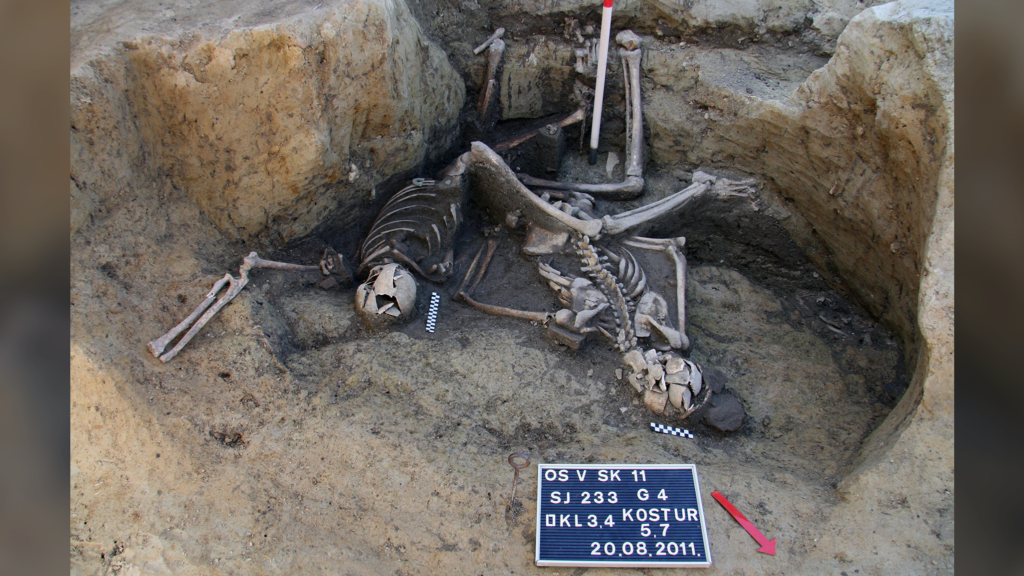Archaeologists excavating an ancient well in eastern Croatia have discovered the skeletons of seven men whose bodies had been tossed in haphazardly. Experts think the remains belong to Roman soldiers who fought in the Battle of Mursa in A.D. 260.
The skeletons were originally recovered in 2011 in an archaeological dig ahead of planned construction at a university in Osijek, which was known as the town of Mursa during the Roman Empire. Although the skeletons were complete, they were found in varying positions in the well, including head-down.
“Presumably, all of the individuals were stripped of any valuables — weapons, armor, equipment, jewelry, etc. — before they were thrown into the well,” study lead author Mario Novak, a bioarchaeologist at the Institute for Anthropological Research in Zagreb, Croatia, told Live Science in an email.
All seven skeletons belonged to adult males, four of them younger adults and three middle-aged adults, the researchers wrote in the study. Several of the men had sustained injuries prior to death, including blunt force trauma to the forehead, rib fractures and weapon wounds. Additionally, a layer of new bone on the inside of their ribcages, which is often seen in infections or injuries, suggested that all the men likely had a lower respiratory tract infection just prior to death.
The researchers carbon-dated four of the skeletons to the second half of the third century, a date range that matched the only artifact recovered from the well: a Roman coin that was minted in A.D. 251.
The composition of the group of skeletons — namely, young and middle-aged males with violent injuries — “is almost identical to those seen in battle-related assemblages” in mass graves, such as the remains of soldiers from Napoleon’s Grand Army, the researchers wrote.

Given the mass grave’s location in ancient Mursa, an important settlement near the Roman military border zone, the researchers concluded that the skeletons likely belonged to men who fought in the Battle of Mursa in A.D. 260.
During the “Crisis of the Third Century” (A.D. 235 to 284), various people fought to lead the Roman Empire. The Battle of Mursa was contested by Emperor Gallienus and the Roman military commander Ingenuus, who unsuccessfully attempted to usurp the throne. The men in the well may be some of Ingenuus’ supporters, the researchers suggested, because historical sources state that Gallienus showed no clemency toward the defeated army.
Further analysis of the men’s DNA showed “high genetic diversity,” according to the study, which “aligns with historical accounts of Late Roman armies, which frequently incorporated ethnically diverse groups such as Sarmatians, Saxons and Gauls.”
Kathryn Marklein, a bioarchaeologist at the University of Louisville in Kentucky who was not involved in the study, told Live Science that the researchers made a strong argument for the military nature of the mass grave at Mursa.
“This research is critical to understanding the direct and violent consequences of political instability during the third century,” Marklein said, and for understanding “how this instability affected populations in the provinces and along the Roman frontiers.”
Additional work is planned on a second mass burial found in another well in Mursa, Novak said, which is very similar to the one in the new study. “We presume these are also the remains of soldiers who lost their lives in the Battle of Mursa in 260.”
